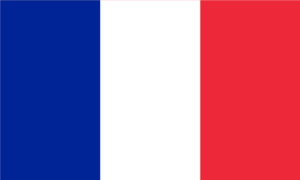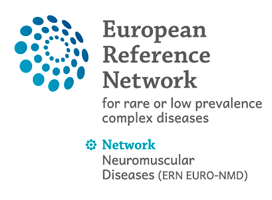Contact
Jean-Phillipe Plançon
- Member of the Patient Advisory Board - Chair of the Educational Board

Jean-Philippe Plançon was born in 1969 and has been living with a rare immune-mediated neuropathy for 25 years.
He is graduated in the field of public health, education, rare diseases, advocacy, business and corporate strategy.
In 2006 Jean-Philippe founded Association Française contre les Neuropathies Périphériques(AFNP), a patient organization supporting people affected by rare neuromuscular diseases such as Guillain-Barré syndrome, CIDP, MMN, Lewis-Sumner syndrome, Miller Fisher and other related disorders including painful neuropathies.
Since 2019, Jean-Philippe is the president of the European Patient Organization for Dysimmune and Inflammatory Neuropathies (EPODIN) and he is also the vice-president of the French Rare Diseases Alliance, composed of 240 RDs patient associations.
After having been a member of several expert committees of the French National Agency for the Safety of Medicines and Health Products (ANSM), since 2021 Jean-Philippe is vice-chairman of the Board of Directors of this agency.
Contact me at pab@ern-euro-nmd.eu
Newsletter Interview
Jean-Phillipe took part in an interview in which he was asked about his role within the network and his expectations.
1. Tell us a little bit about yourself
“I am 55 years old and I have been suffering from a very rare peripheral neuropathy called Multifocal Acquired Demyelinating Sensory and Motor neuropathy (MADSAM or Lewis-Sumner syndrome) for 25 years. I have been involved in patient organisations both at national and international level for many years.
At the national level, I founded in 2006 the French Association against Peripheral Neuropathies (AFNP) and in 2016 the French Alliance of Rare peripheral neuropathies patients’ associations (Alliance-Neuro), a coalition of different patient associations involved in the field of rare peripheral neuropathies acquired and genetic (i.e. mainly inflammatory neuropathies, CMTs, amyloidosis). I am also very involved in the managing of the French rare disease alliance a big organisation of 240 RDs patient organisations which I vice-chair.
At the International level, with several European patient organisations (POs) we have cofounded the European Patient Organisation for Dysimmune and Inflammatory Neuropathies (EPODIN). We aim by acting at the European institution level, to strengthen the patient’s voice and to give each European citizen living with a rare immune-mediated peripheral neuropathy the opportunity to reduce the burden and inequalities due to the disease. I have been chairing EPODIN since 2019.
My professional background is mainly related to public health, rare disease, education, journalism and advocacy.
I am married and I have a daughter aged 24. My wife and my daughter are two pillars in my associative commitment.”
2. What is your role in EURO-NMD?
“Elected to be a member of the European Patient Advocacy Group for the European Reference Network EURO-NMD in 2016, I am involved in several working groups of the network.
. The Patient Advisory Board, a driving force for EURO NMD in which patient representatives from different NMDs POs work hand in hand with the coordination team and working group leads.
. The educational board, member of the executive committee of the network that I chair in full collaboration with clinicians.
. The peripheral neuropathies working group in which we have strong relationship with other national and European patient organisations and clinicians. e.g. we have created (i) videos for general practitioners to reduce diagnosis wandering in peripheral neuropathies, (ii) infographics to show patient journey and raise awareness in very rare disease such as MMN, (iii) inflammatory neuropathies’ webinars for clinicians and patients.
In a general way, I try to add the voice of patients as much as possible because I believe health care systems are first working for people affected by (rare) diseases. Each of us has got a role to play in improving health care.”
3. What are your expectations of the Network?
“I know ERNs can really help to improve diagnosis, treatment access and change patient’s lives in all Europe. Within EURO-NMD, since the beginning, patient representatives are involved in the functioning of the network (i.e. executive committee and each sub-group). It is very important because, we can really work with all stakeholders, and health professionals, and to share and add our patient perspectives.
The question of the integration of ERNs in national health care systems is also critical if we consider the sustainability of these entities. Similarly, it highlights the question of collaboration/relation between public and private.
In my opinion, this is only the beginning of the story of the ERNs, and it will take some time to learn to work together, but I am very proud to be part of this international process dedicated to improving the quality of life of thousands of patients in Europe, and to supporting the training and education of young clinicians and patient representatives.”

